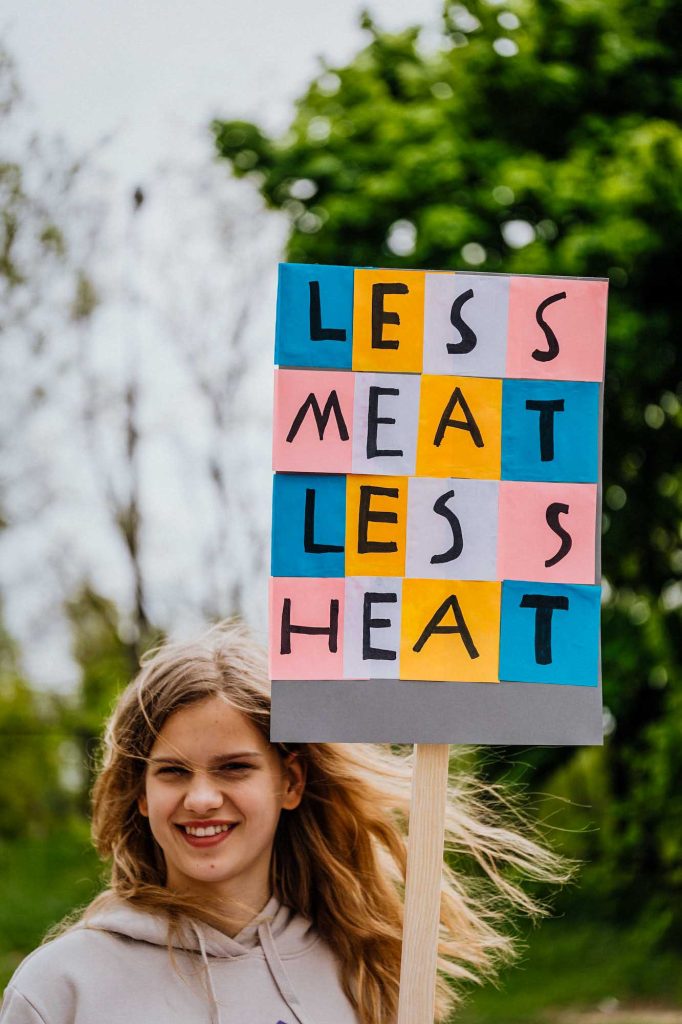It’s not always easy being responsible.
As the (delayed) train journey home from the Urban Future conference in Stuttgart entered its eleventh hour, a creeping thought formed: had we taken a flight, we could have been home hours ago.
So why didn’t we?
As a company that makes sustainability its business, we’re expected to walk the walk – which still may have been a quicker option than the train!
But on occasions, this does seem to make life harder. The question is, just how sustainable is sustainability if we have to go the extra mile each time to do the right thing?
Keep It Simple
According to data agency Kantar, 97% of people are willing to change their lifestyle for the benefit of the planet – although more than two-thirds don’t because of costs.
There’s the rub. We’re on board in theory, but it don’t always see it through.
Let’s take some everyday examples: shifting from a disposable (or recycling) model to a culture of refills is a nice idea but will cost manufacturers to set up, so Greenpeace says. This, of course, will be passed on to the consumer. But they highlight, the greater challenge may be getting customers to change habits regardless of cost.
The issue here is that those of us who want to do the right thing will have to put a lot of effort in to understand what that is. Between clever marketing and greenwashing, this could be a minefield of misinformation – we have to be willing to put the time in to research and filter the right info. That’s an investment many may be unwilling or unable to make.
How about something a bit more straightforward – a meat-free diet?
Turns out it has a similar problem: eating healthy as a vegan requires us to understand what’s in the fancy meat-free alternatives – and, as it turns out, it’s not always that good for us. Whereas if we leave out the fake sausages and stick to lentils, veg, and rice, we could eat well – for less! Even if it does require more creativity to cook exciting meals.

Is It Worth the Effort?
In 2022, Vox reported that “[b]y reexamining the way we live, move around, and eat, the world has the potential to slash up to 70 percent of end-use emissions by 2050”.
That’s significant. So maybe the onus is on us to change our ways.
If it was made easier, undoubtedly, we would.
But even for those of us who are environmentally minded, it can feel futile and unfair that we’re having to go to such lengths for the greater good.
Big Oil, gas, and plastics companies are so good at diverting responsibility for climate change from their own doors.
You might say that they’re in cahoots with government to sustain the destructive business-as-usual model, and that’s why they invest big bucks to spoon-feed us the guilt that they rightly deserve to carry. Meanwhile, the planet burns.
This nefarious partnership of money and politics allows both to elude accountability.
Then, when we see well-meaning and helpful advice for individuals – like the UN’s actions for a healthy planet – it is a message that reinforces the idea that it is our duty to act.
Pressures on Individuals to Act
Whether through hope, caring, terror, or desperation, it is individuals who are taking up the mantle in an attempt to mitigate climate breakdown. Like the climate protesters who had glued themselves to the tarmac one morning as I walked to work.
This was the second time in a matter of months the activists had struck, creating a rare day when pedestrians could smugly cross the road while the cars waited their turn.
The irony being that climate-conscious citizens who responsibly take public rather than independent transport would also have been held up by the blockade. They must have wondered why they bothered!
At least in Graz it’s possible. Elsewhere, people are often forced to drive, beyond their financial means, for lack of reasonable alternatives. The Urban Future team noted the clear lack of regular buses during our time in Stuttgart, for example – an infamous car manufacturing city.
#climatecrisis #climateemergency pic.twitter.com/ne0PiU4Oth
— Collapse Survival Site (@CollapseSurvive) July 9, 2023
Image credit: Twitter / Collapse Survival Site
Let’s not pretend it’s glamorous to do the right thing, either.
Sat in that overheated train cabin as it crawled across Germany and panted into Austria, all I wanted was to hear the whir of air-con jumping into action – despite usually being adamantly anti-A/C.
It felt like the world was warming by the minute. Maybe it was.
The heatwave of summer 2023 has Europe on red alert. This follows on just 12 months after record temperatures and heat-related death tolls.
Indoor climate control is likely to rise in demand, creating a negative feedback loop – air-con is a contributor to GHG emissions and therefore causes climate heating.
So, to do the right thing, are we just expected to sit and sweat while mass polluting fossil fuel industries carry on as normal and the wealthiest minority who emit as much CO2 as France go unchallenged?
Mass Movements Are Made of Individuals
Where’s the sweet spot? The point where everyone – whoever, wherever, and however rich and powerful they are – does something!
It’s noteworthy that Extinction Rebellion announced a change in tactics earlier this year. Gone are the disruptions, stunts, and blockades. They’ve turned to cooperation and dialogue to draw people to their cause. Swelling their ranks and speaking with a united voice could add much needed pressure at the political level, creating a cascade of top-down systemic reform.
It is a smart move. Positivity is more likely to encourage individual behaviour change.

It seems to be working at a corporate level, too, with CMS writing how “a commitment to sustainability is fast becoming a deal breaker” for job applicants. In order to attract the top talent, companies are investing in ESG as a way to prove their commitment to sustainability.
It’s also interesting that plenty of online guides advising on individual climate action aren’t so much about lifestyle choices either.
Often they make clear that we have most to gain by calling for systemic change. Both Imperial College London and the Natural Resources Defense Council advise vigilance as to how we invest and – first of all – call on us all to demand a transformation from decision-makers.
So, it seems, we need both a wide-scale economic and political transition and alteration to individual behaviours.
But both must make it convenient, affordable, and even enjoyable to do the right thing. Until rail travel improves, I’ll still be tempted by those budget flights.
If this happens, the next time we are sweltering in a train carriage, hurtling to a destination as fast as electricity can carry us, we could take some comfort knowing that it could be much worse: we could be stuck stock still in an overheating car while the police try to scrape protestors off the tarmac. And unless we act, next year the carriage will probably be even hotter.
Let’s all do our bit to make sure that doesn’t happen.
Have Your Say
Who do you think should step up to solve climate change? Do you think that everyone should be involved or is it the responsibility of decision-makers & the most wealthy to take the lead? Do you find yourself priced out of doing the right thing? Are you sick of being told to change for the sake of the environment? Or do you go out of your way to do everything you can to minimise your impact and carbon footprint? If you encounter any inconveniences because of responsible behaviours, is it worth it? Do you lead a project that focuses on exactly this topic that you’d like to tell us about?
Add your thoughts and feedback in the comments below. Please remember to always keep the conversation respectful.


